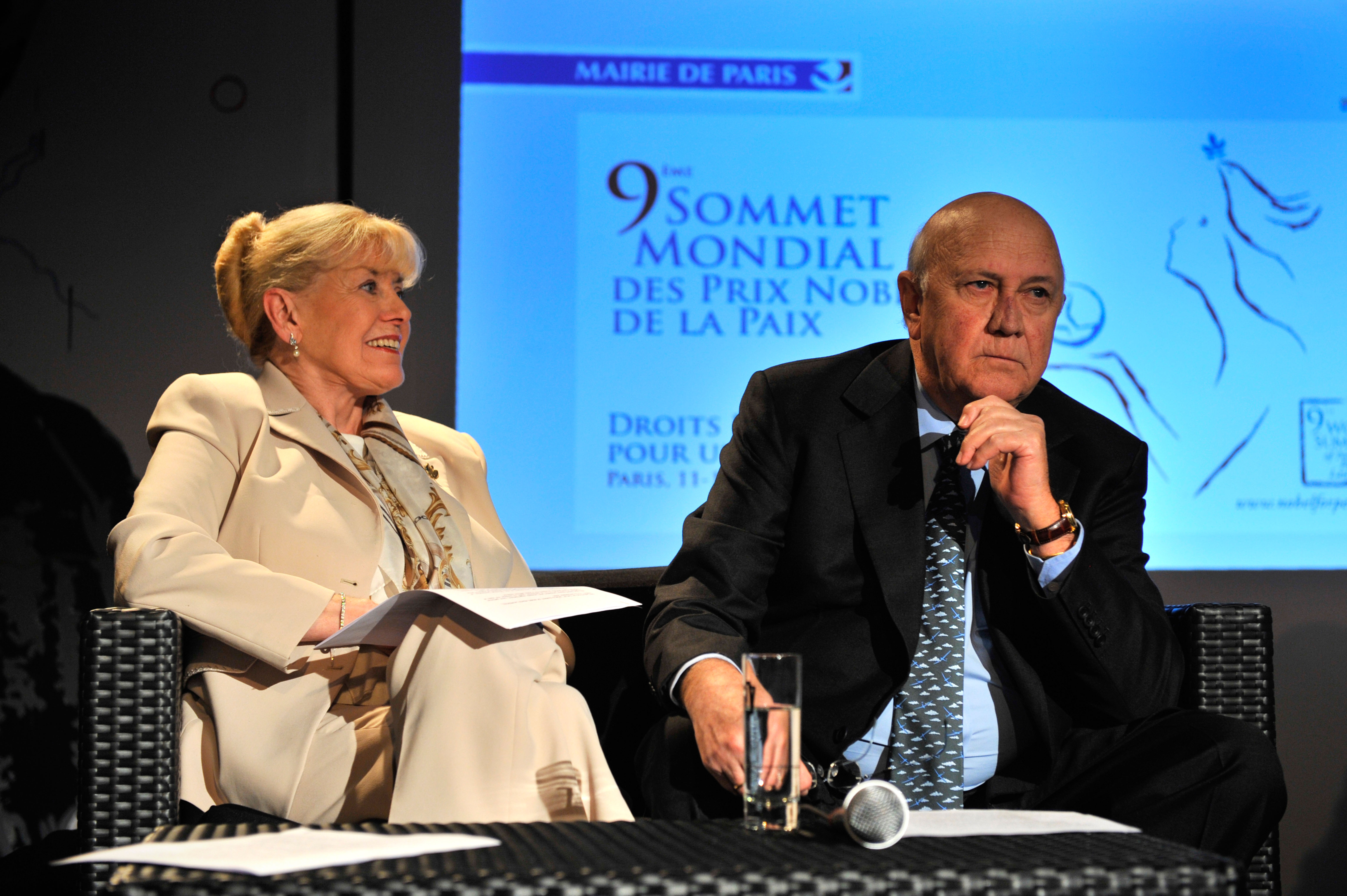De Klerk, Frederik Willem << duh KLEHRK, FREH dehr ihk VIHL uhm >> (1936-2021), was head of South Africa’s government from 1989 to 1994. He was credited with helping the country’s Black majority gain control of the government. South Africa had long been ruled by its white minority.

South Africa’s white rulers had established a policy of racial segregation called apartheid along with their system of white-minority rule. Under this policy, Black people were not allowed to vote. As president, de Klerk was a major force in ending apartheid and giving Black people the right to vote. The first elections in which Black citizens could vote were held in April 1994. Black legislators won control of Parliament. Parliament chose the Black leader Nelson Mandela as president and de Klerk as deputy president. De Klerk and Mandela won the 1993 Nobel Peace Prize for working to end apartheid and to give nonwhite people full participation in government. In 1996, de Klerk resigned.
De Klerk was born on March 18, 1936, in Johannesburg, in what was then the Transvaal Province. He attended Potchefstroom University (now part of North West University) and then practiced law. De Klerk served in South Africa’s Parliament from 1972 to 1989. He became a member of the South African national government’s Cabinet in 1978. In 1989, State President P. W. Botha, South Africa’s leader, resigned because of ill health. De Klerk replaced him as state president. De Klerk was elected to the post later in 1989. De Klerk died on Nov. 11, 2021.
